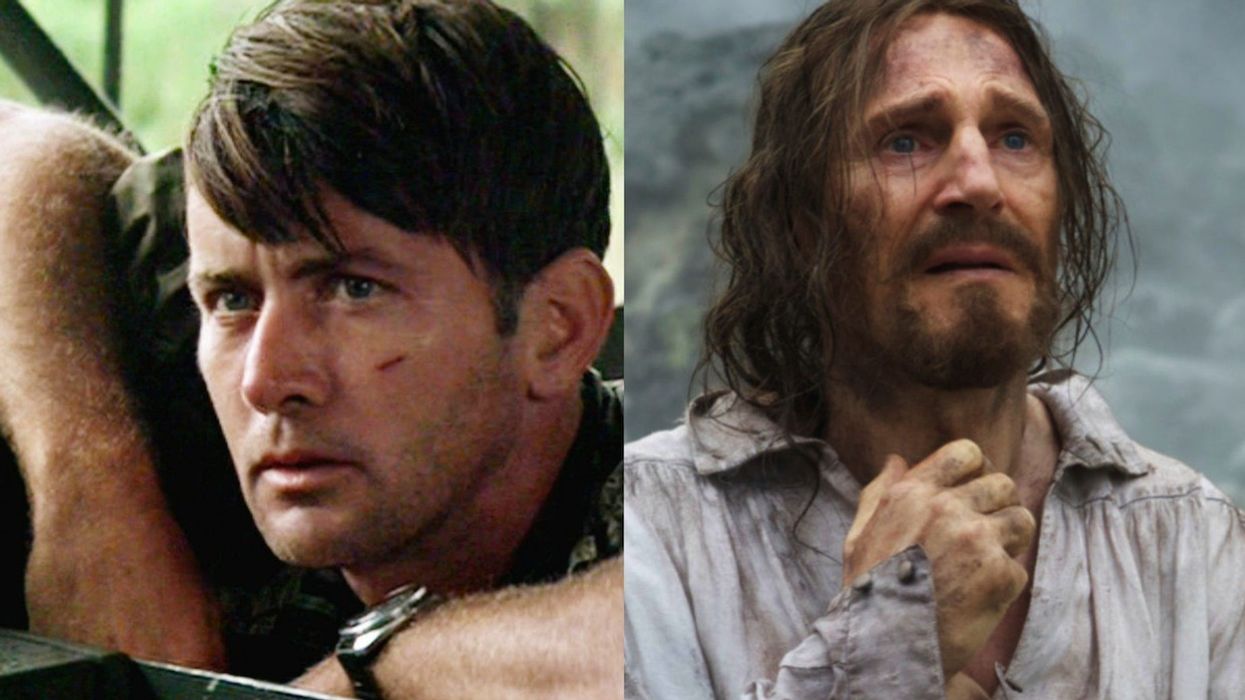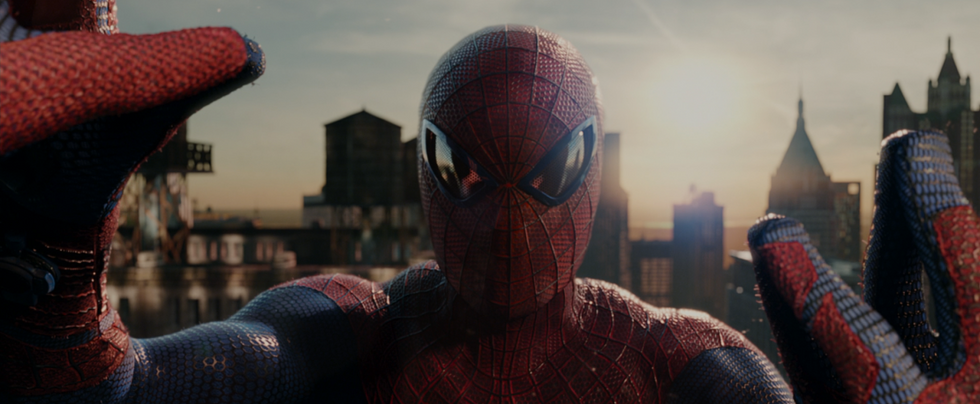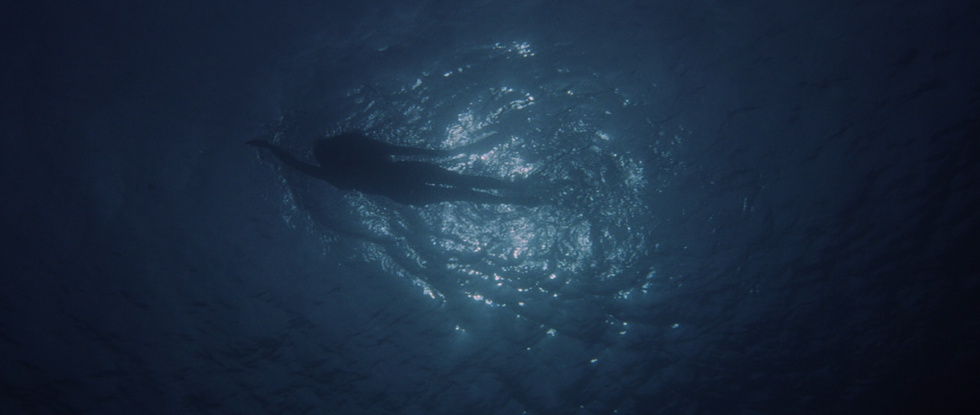Watch: Why 'Silence' and 'Apocalypse Now' Are Two Sides of the Same Coin
This video essay teases out the thematic links shared by Apocalypse Now and Silence, and finds two films that are almost mirror images of each other.

Apocalypse Now, Francis Ford Coppola's 1979 Vietnam epic, had a famously troubled production that could have cost the director the farm (literally) had it not been a massive hit. Likewise, Silence, the recent Martin Scorsese film, had a less manic, but just as harrowing journey to the big screen, taking over 25 years to be realized. Both movies were made by filmmakers who are famous for their films on organized crime, and neither director is a stranger to long and tricky productions, but according to this video essay from Jack's Movie Reviews, that's just the most superficial of similarities between the two. (Note: There Will Be Spoilers.)
Both Apocalypse Now and Silence "follow Westerners going into Eastern lands in search of a once respected man" who has betrayed their values, or the values of their culture in some way, with Apocalypse Now's Marlon Brando (as Col. Kurtz) having disappeared into the jungle during the Vietnam war to "live as a god" amongst the natives.
In Silence, it is Jesuit Priest Fr. Cristóvão Ferreira who is rumored to have lost his faith while practicing Catholicism in 17th century Japan, during a time when the practicing of Christianity was strictly outlawed and punishable by death. Like Kurtz, he is feared to have lost his sense of mission, though unlike Kurtz, he has not been marked for death by those looking to find him.
The two protagonists (Martin's Sheen's Willard and Fr. Sebastião Rodrigues, played by Andrew Garfield) struggle "with the idea of these two men changing so drastically," as they discover that what they feared is true: Kurtz has gone insane, and Ferreira has renounced Christianity. The difference is what happens when they get there, except it's not so much a difference as it is an inverse, and this is the interesting thing.
When Willard kills Kurtz, he becomes him, in a sense, becomes the madness that Kurtz represents, the madness that we have seen for the previous two plus hours of the film as he travels inexorably towards him. When Rodrigues finds Ferreira on the other hand, he chooses to follow in his footsteps, literally, renouncing his faith but gaining a "new understanding." Willard, too, gains a new understanding, but other than a void in his soul, it is unclear of what. They are both reborn, but in completely opposite ways.
Both films are archetypal in that they are, more or less, "road" movies, with protagonists on literal journeys that mirror their internal ones. In both films, these men confront surrogate father figures, but Apocalypse Now, a far more nihilistic film, doesn't offer the chance for redemption, because there can be no redemption in the insanity of Coppola's hell-scape.
Nevertheless, it is fascinating to see how two films, by two directors from the same generation (and two masters of their craft), can tackle the same theme (as they've tackled similar themes before) and produce works of art that showcase their individual sensibilities. If nothing else, it's an object lesson in the fact that it's not the simplicity of the basic concept, but the nuance of the execution, that determines the art, and that's something that always bears reflection.
Source: Jack's Movie Reviews

 'The Amazing Spider-Man' (2012)
'The Amazing Spider-Man' (2012) 'Jaws' (1975)
'Jaws' (1975)









